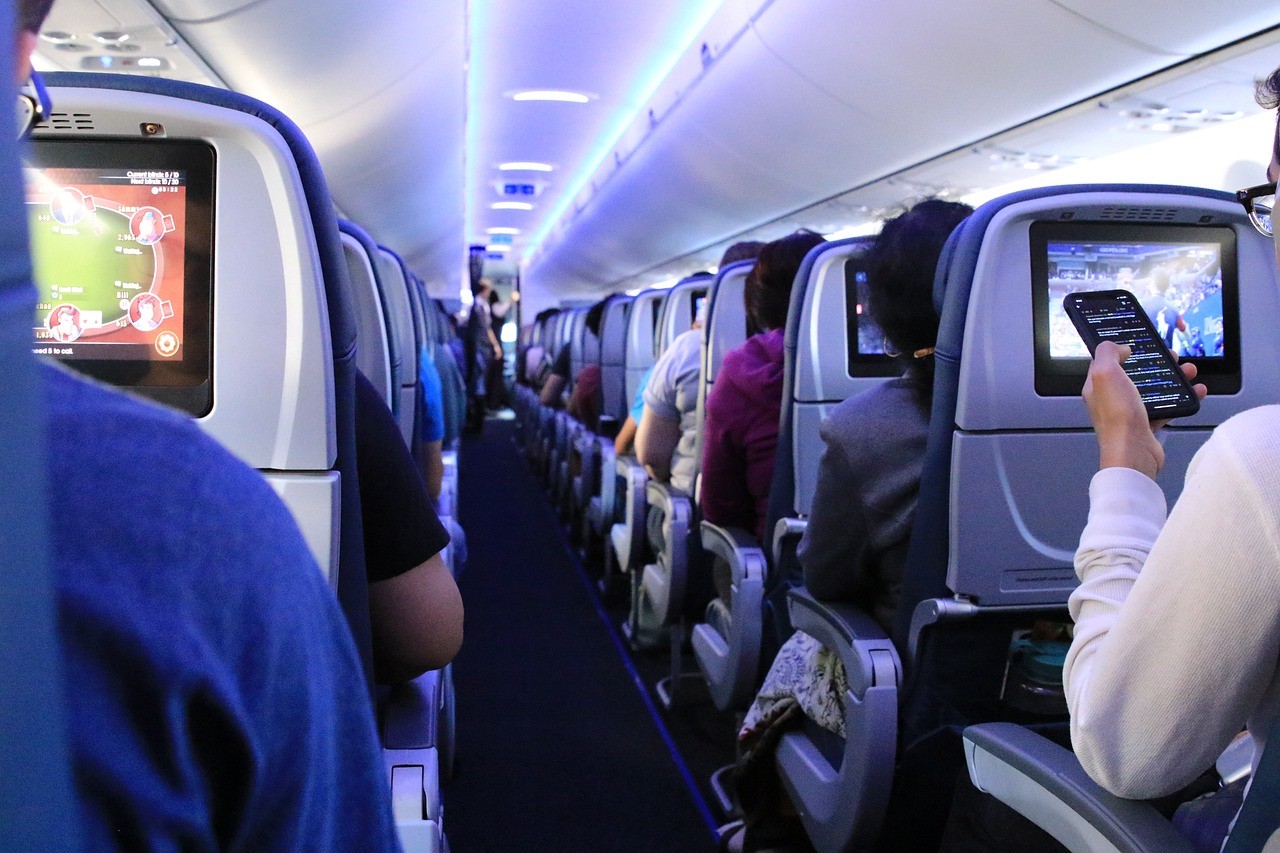Are long flights leaving you feeling like you've lost precious time? Jet lag remedies hold the answer to reclaiming your energy and enthusiasm.
This guide will unveil practical solutions to combat fatigue and discomfort, ensuring you enjoy a refreshed travel experience.
Whether you're a seasoned traveler or a newbie, these remedies will invigorate your journey so you can make the most of every adventure. Ready to discover the secrets to revitalizing your travels?
Understanding Jet Lag
Jet lag is a temporary sleep disorder that occurs when your internal body clock, also known as your circadian rhythm, becomes desynchronized with your destination's time zone.
This misalignment can lead to various symptoms, including fatigue, insomnia, irritability, and difficulty concentrating.
The primary causes of jet lag include:
- Time Zone Disruption: Crossing multiple time zones rapidly disrupts your natural daily rhythm, leaving your internal clock synchronized with your departure zone causing a disconnect at your destination.
- Altered Light Exposure: Light powerfully influences your circadian rhythm. Sudden exposure to unfamiliar daylight or darkness confuses your internal clock.
- Irregular Sleep Patterns: Long flights often mean irregular sleep, like overnight travel or daytime napping, which deviates from your usual sleep routine and contributes to jet lag symptoms.
- Dehydration and Cabin Pressure: Airplane cabins' low humidity can dehydrate you, while reduced oxygen at high altitudes affects sleep quality and leads to fatigue upon arrival.
- Stress and Anxiety: Travel stress, including the anticipation of jet lag, worsens its effects. Anxiety about adapting to a new time zone hinders relaxation and adjustment.
Understanding these primary causes of jet lag is essential in finding effective remedies to minimize its impact on your travel experience.
Pre-Travel Preparation
Pre-travel preparation is essential for minimizing the impact of jet lag. Here are vital steps to take before your journey:
- Gradual Sleep Adjustment: Adjust your sleep schedule gradually to align with your destination's time zone.
- Stay Hydrated: Begin your trip well-hydrated by drinking plenty of water in the days leading up to your departure.
- Strategic Flight Selection: Choose overnight flights strategically to facilitate rest on the plane and arrival during the daytime at your destination.
- Light Exposure Control: Gradually adjust your exposure to natural light to prepare your body for the new time zone.
- Healthy Diet: Maintain a balanced diet, and avoid heavy or spicy foods close to your departure date.

During the Flight
Managing jet lag in flight is crucial to ensuring a smoother transition to your new time zone. Here are five practical tips to help you stay refreshed during your journey:
- Stay Hydrated: Drink water regularly throughout the flight to prevent dehydration, which can exacerbate jet lag symptoms.
- Limit Caffeine and Alcohol: Avoid excessive consumption of caffeine and alcohol, as they can disrupt your sleep patterns and dehydrate you.
- Stretch and Move: Get up from your seat, stretch, and walk around the cabin periodically to improve circulation and reduce stiffness.
- Adjust Your Watch: Set your watch to the destination's time zone as soon as you board the plane. This helps me mentally prepare for the new schedule.
- Sleep Strategically: If you're on a long overnight flight, plan your sleep schedule to align with your destination's time zone. Use earplugs, an eye mask, and a neck pillow to create a comfortable sleeping environment.
Also read: Ultimate Travel First Aid Kit Checklist for Every Trip
Post-Arrival Strategies
Upon reaching your destination, minimising the impact of jet lag and swiftly adapting to the new time zone is essential. Here are seven pieces of advice to help you do just that:
- Expose Yourself to Natural Light: Spend time outdoors in natural daylight to help reset your internal clock.
- Strategic Napping: If you're exhausted, take short naps to recharge, but avoid long, deep sleep that can disrupt your adjustment.
- Stay Active: Engage in light physical activity like walking or stretching to boost circulation and reduce fatigue.
- Hydration: Continue to drink water regularly to remain well-hydrated and aid in the adjustment process.
- Limit Caffeine and Alcohol: Avoid excessive consumption, as they can interfere with your body's ability to adapt to the new time zone.
- Healthy Eating: Opt for well-balanced, light meals, and avoid heavy or spicy foods incredibly close to bedtime.
- Establish a Routine: As soon as possible, establish a daily routine in line with the local time zone, including mealtimes and bedtime. It can help signal to your body when it's time to be awake and when it's time to sleep.
Natural Remedies
Natural remedies and lifestyle adjustments can play a significant role in combating jet lag and helping you adapt to a new time zone more smoothly. Here are some effective strategies to consider:
- Melatonin Supplements: Melatonin is a hormone that regulates sleep-wake cycles. Taking melatonin supplements can help reset your internal clock when used appropriately, following consultation with a healthcare professional.
- Herbal Teas: Certain herbal teas, such as chamomile or valerian root, are known for their calming effects and may assist in promoting relaxation and better sleep.
- Aromatherapy: Aromatherapy using essential oils like lavender or peppermint can create a soothing environment, aiding relaxation and sleep.
- Dietary Choices: Foods rich in tryptophan, like turkey, chicken, and nuts, can promote the production of melatonin and serotonin, potentially aiding in better sleep.
- Stay Hydrated: Dehydration can exacerbate jet lag symptoms, so drink enough water.
- Light Exposure: Control your exposure to light, both natural and artificial, to help your body adjust to the new time zone.
- Mindfulness and Relaxation Techniques: Practices like deep breathing, meditation, or progressive muscle relaxation can help reduce stress and anxiety, making it easier to adapt to a new environment and time zone.
By incorporating these natural remedies and lifestyle adjustments, you can enhance your ability to overcome jet lag and make the most of your travel experiences.

Over-the-Counter Solutions
Over-the-counter solutions can offer quick relief from jet lag symptoms, allowing you to regain energy and enjoy your travels more fully. Here are some commonly used over-the-counter remedies:
- Antihistamines: Certain antihistamine medications, such as diphenhydramine, can induce drowsiness and help you sleep during your flight or adjust to a new time zone.
- Sleep Aids: Over-the-counter sleep aids, like melatonin supplements or products containing doxylamine succinate, can assist in promoting restful sleep when used as directed.
Before using any over-the-counter solutions for jet lag, it's advisable to consult with a healthcare professional or pharmacist to ensure they are safe and appropriate for your specific needs and circumstances.
Professional Advice
For severe jet lag, consult a healthcare professional. They can prescribe medications tailored to your needs, such as sleep aids, melatonin agonists, or modafinil. Some potential prescription medications that a healthcare professional may recommend include:
- Prescription Sleep Aids: Medications like zolpidem (Ambien) or eszopiclone (Lunesta) can help regulate sleep patterns under medical supervision.
- Melatonin Agonists: Drugs like ramelteon (Rozerem) may stimulate melatonin receptors to assist in resetting your internal clock.
- Modafinil: In certain situations, doctors may prescribe modafinil to promote wakefulness and combat daytime sleepiness associated with jet lag.
Use prescription medications only under a healthcare provider's guidance, as they can have side effects and interact with other drugs. Consulting a professional ensures tailored treatment for your specific needs.
Mastering Jet Lag: A Path to Travel Refreshed and Energized
In conclusion, jet lag must be a manageable challenge during travel.
By implementing the practical strategies and remedies discussed in this guide, you can minimize its impact and rediscover the joy of exploration with a refreshed and invigorated spirit.
With proper preparations, jet lag becomes manageable for business or leisure, enabling you to enjoy every destination fully.

















